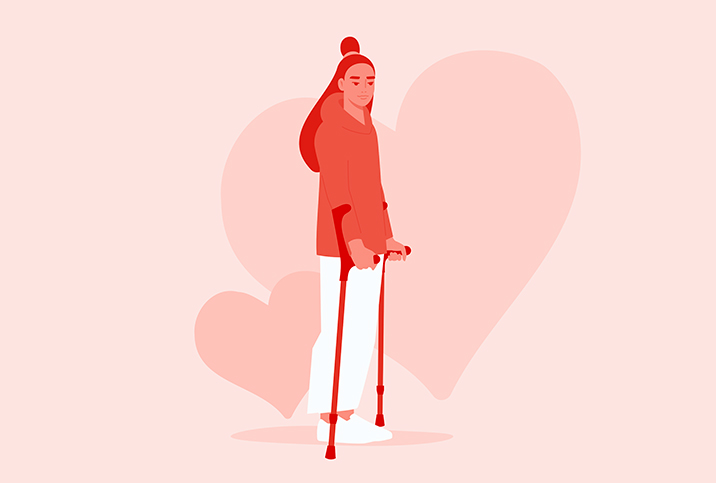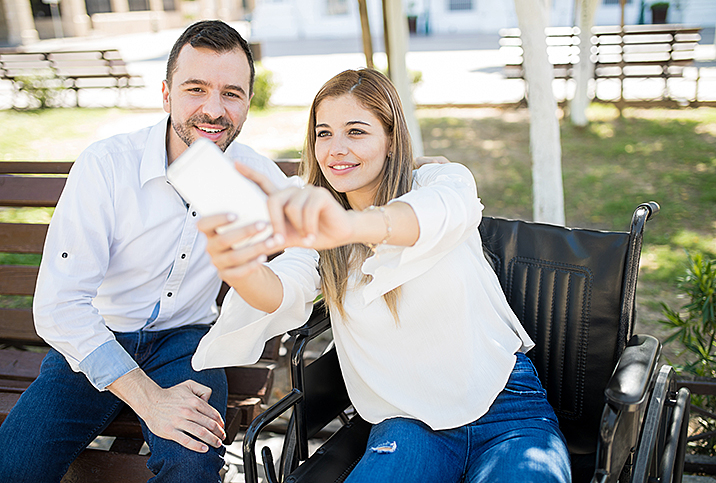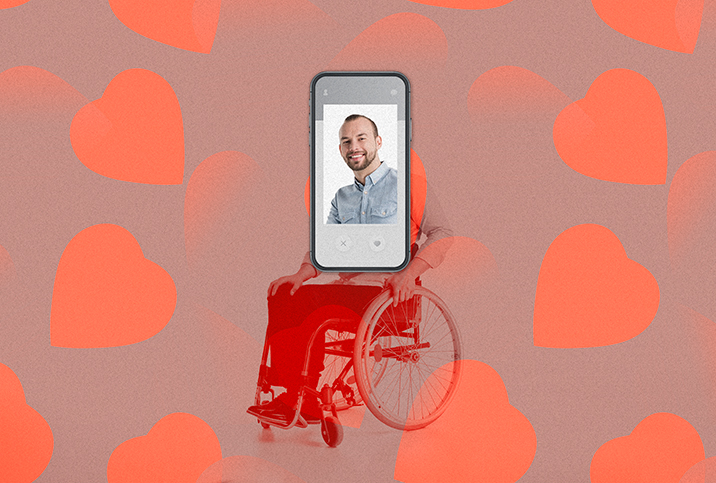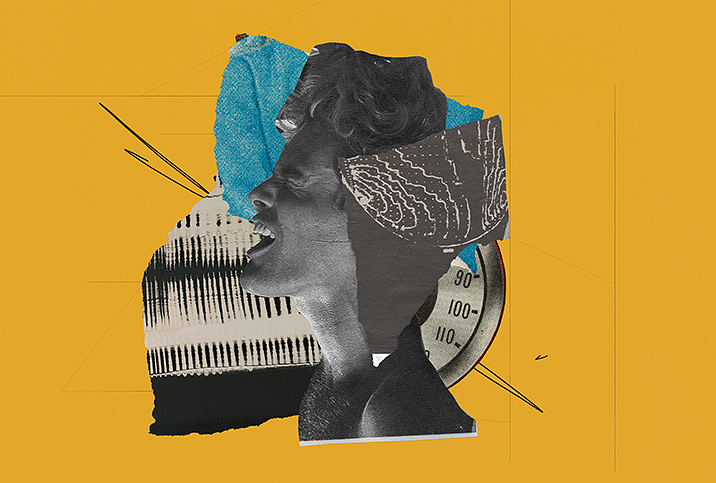Sex When You Have a Spinal Cord Injury

However you look at it, life after a spinal cord injury carries with it many challenges. One of those challenges is sex; not only how this injury may affect your relationship, but also whether you'll ever have sex again.
Questioning issues of intimacy and seeking healthy ways to navigate natural human desires are completely normal paths to follow. The good news is that many spinal cord injury patients have success feeling sensations in all the right places and are able to make the most out of their physical limitations, including having children.
There can still be erections
"We have to remember every person and every injury is different, therefore, after an injury, what arouses people and makes them horny may be different than pre-injury," said Vinny Dolan, a spinal cord injury recovery expert and the executive director of spinalcord.com, based in Tampa. "Some people enjoy light touching around their ears, while others lose all sensation."
Men with spinal cord injuries can typically get an erection as long as their injury does not encompass the S2-S4 pathway of the spinal cord. In medical terms, this is known as the sacral parasympathetic nucleus (SPN), containing preganglionic neurons that project via the pelvic splanchnic nerves to ganglion cells in the pelvic plexus and ganglia located in the walls of the bladder, rectum and genitalia.
The S2-S4 pathway affects reflex erections, which can be triggered with direct stimulation of the phallus. However, maintaining an erection may often be difficult, which can result in feelings of inadequacy and low self-esteem. This need not be the case, though, because erectile dysfunction (ED) for men with spinal cord injuries can be successfully treated with medication, although the dosage should be prescribed after consultation with a medical professional.
For women with spinal cord injuries, their ability to have sex is not tied to any specific motor function, such as initiating and maintaining an erection, and that's one less barrier to overcome. However, many of these women tend to take longer to produce less vaginal lubrication.
The location of the injury is key
People of all genders with spinal cord injuries tend to experience diminished sexual urges. However, they can still have a sex drive and achieve sexual satisfaction. Ejaculation for men with spinal cord injuries does not come easy, and injured women may find it difficult to reach orgasm.
Broadly speaking, in men, the lower the injury, the greater their chance of having a healthy sex life. Men with an incomplete lower-level injury have the greatest chance to ejaculate. If they have a complete lower-level injury, it is possible to ejaculate, but the more complete the spinal cord injury, the more difficult ejaculation becomes. Someone with a complete upper-level injury, though, faces the worst odds of being able to ejaculate.
Women can experience a similar loss of libido and may experience disruptions in their menstrual cycles. But according to a 2017 study in the Spinal Cord Injury Rehabilitation journal, women with spinal cord injuries have a greater chance of achieving orgasm when the clitoris is stimulated compared with stimulation of the G-spot.
Perhaps the best strategy is for partners to communicate effectively in the bedroom and practice patience. There's a lot to work with: Both men and women with spinal cord injuries often develop newer, more sensitive erogenous zones, such as the ears, scars and neck.
Defying the odds: Sex after spinal cord injury
People with spinal cord injuries claim it's beneficial to undergo a variety of treatments—such as chiropractic care—to help improve sexual function.
"Chiropractic therapy has been at the forefront of low back pain relief, and in many cases, alleviating overall pain and discomfort leads to an improvement in sexual function," said Rich Minuski, a chiropractor and registered nurse in Westwood, New Jersey, who is studying to become a family nurse practitioner. "Every case is unique, and in my professional opinion, you should always be evaluated in person to determine what form of treatment is best for you."
Having a healthy and fulfilling sex life, while possible, comes with the usual risks, such as sexually transmitted infections (STIs) and unplanned pregnancies. But people with spinal cord injuries, especially those with damage high on the spinal cord, also face a condition known as autonomic dysreflexia, which can be triggered by sex. Around 90 percent of people with cervical spine or high-thoracic spinal cord injury are susceptible to autonomic dysreflexia.
Symptoms include high blood pressure, headaches, blurry vision, anxiety and profuse sweating along the injury region. These symptoms often occur during or after sex. The potential consequences—including death and a 300 percent to 400 percent increased risk of stroke—are serious, so it is vital to speak to a medical professional if you suspect you have this condition.
Getting your sex life back
A positive outlook and a willingness to try new things in the bedroom can go a long way for anyone living with a spinal cord injury. As long as the risks are understood and your recovery time has been enough, there's no reason to eliminate sex just because of a spinal cord injury.
"When it comes to having a great sex life after an injury, it's all about creativity and communication with your partner," Dolan explained. "After there is a level of comfort established, the sky's the limit and new experiences can lead to mind-blowing nights...and mornings, too."
Spinal cord injury survivor @scimotivation also shared his story and hoped to inspire others not to give up and keep going even when the going gets tough.
"In the beginning, sexual function and sexuality were not a priority for me since there were so many other things to fight for. But since I started my journey to walk again, I have recovered in all areas of my body. I healed my incontinence and got some sensation back. Everything that I did in the last one and a half years was not possible, according to my doctors, and I am working on all the stuff to see how far I can come after this injury," he said.
"Recovery is possible if you believe in the first place," he added. "Find the best therapist. Be consistent and do whatever it takes to reach your goals."


















